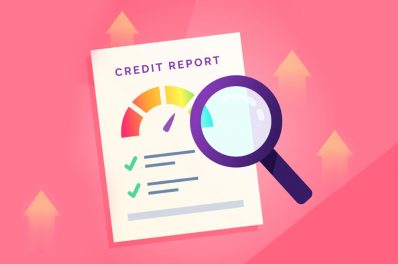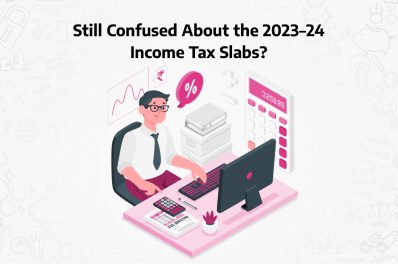
Credit Information Bureau of India Limited (CIBIL) is one of India’s oldest and most trusted credit rating and information companies. Banks and financial institutions send monthly reports to CIBIL to evaluate retail consumers’ credit card and loan payment details. The report they create using these details is called Credit Information Report (CIR), based on which they calculate your CIBIL score. Lenders check CIBIL score of loan applicants to determine their creditworthiness and decide whether to approve their application, how much, and at what interest rate.The primary objective of the CIBIL score is to get a transparent and unambiguous overview of a person’s financial records. Although it is one of the most crucial determining factors for your financial health, several misconceptions are prevalent among users with limited knowledge. Below, we are going to enlist some of such misconceptions and know the facts.
What Is Cibil Score?
CIBIL score is a 3-digit number that CIBIL calculates based on your credit history. Banks, lenders, and credit card providers heavily rely on this score to make their decision of approving or rejecting your application. Ranging between 300 and 900, any score more than 630 is considered good by most financial institutions. The higher score you have, the higher chances you have of getting credit at reasonable interest rates.
Common Misconceptions and The Facts Behind Them
Myth #1: CIBIL Maintains a List of Defaulters and Approves or Rejects Loan Applications
No, it does not. CIBIL does not publish or maintain a list of defaulters at any time. It has access to the credit history of borrowers who have opted for or enquired about loans or credit cards. However, the credit history is a mixture of all credit activities of the borrower, and the bureau calculates the credit score based on different algorithms.
CIBIL also does not have any hand in approving or rejecting your loan application. It is entirely up to the lenders to check CIBIL score of the applicants and evaluate their creditworthiness based on different aspects.
Myth #2: CIBIL Can Make Changes in Your Credit Report
CIBIL is a credit bureau, and it does not have any authority to make changes in your CIBIL report. They write in your credit report whatever your lender reports to them about your credit history. They can only update your records and make valid changes as the lender reports, but they cannot alter your report at their will.
Myth #3: Your Loan Approval Depends on Your CIBIL Score Only
When you apply for a loan, lenders check CIBIL score and heavily depend on it to finalise their decision. However, your score is not the only parameter to determine your loan rejection or approval. Lenders also rely on several other factors, including your eligibility, earning potential, documents, income, job, and others.
Also Read: Budgeting Tips That can Help You Improve Your Credit Score
Myth #4: No History of Credit is the Best
Actually, this is a common misconception that is absolutely wrong. If you are borrowing for the first time, you obviously have no history of credit. However, lenders prefer borrowers with a long credit history with responsible repayment habits. Since the lender does not have any source to verify your creditworthiness, they may hesitate in sanctioning your loan application. A high CIBIL score of 630 or above is a clear indicator of your financial behaviour and guides the lender on what kind of borrower you are.
Myth #5: You are Stuck With a Low CIBIL Score Forever
There is no truth in this misconception. The credit bureau evaluates your score based on your repayment behaviour and credit obligations. So, even if you have defaulted on your payments or fell behind on your mortgage payments, there is always a possibility of boosting your score. Improve your financial habits, start paying your bills and EMIs on time, and you will notice a gradual improvement in your credit score for sure. Remember, CIBIL updates your report regularly, and a lender pulls your report only when you apply for a loan. So, they will always receive your latest CIBIL report.
Myth #6: Your Score Depends on Your Income and Assets
Your score reflects your financial transactions in relation to your credit. An individual might be earning low but may have a high score because they pay their EMIs and credit card bills on time. However, an individual who makes big but has the habit of missing payment dates may have a lower credit score. It is also possible that a person earns high but has no credit score just because they have never taken a loan. So, your credit repayment dictates your score, not your earnings and assets.
Myth #7: You May Harm Your Score by Checking Your Report Frequently
Checking your credit report frequently is a good practice. By doing this, you stay updated about your current financial position and spot any errors that you can report to the credit bureau in time. Neither of these activities impacts your credit score. However, multiple credit enquiries may have an impact, as it projects you as a credit-hungry borrower in the eyes of lenders.
Myth #8: Pay Off Your Debts to Increase Your CIBIL Score
Paying off your debt is a good idea under any circumstance since it shows that you are in complete control of your finances. However, that will not increase your score because it is based on your other transactions as well. Your lender will check all your transactions before making a decision about your creditworthiness.
Myth #9: Close Your Old and Obsolete Accounts
This technique is absolutely wrong and can even harm your credit score. Instead, you must retain your old accounts even if you no longer use them. They will not only add to your credit history but also give you a credit limit.
So, these are the most common misconceptions about CIBIL score you should be aware of. Remember, your score helps lenders know your creditworthiness and helps you maintain sound financial health by helping you monitor your credit habits. Clix Capital offers personal loans, business loans, and other financial products to meet your planned or unplanned cash needs.







